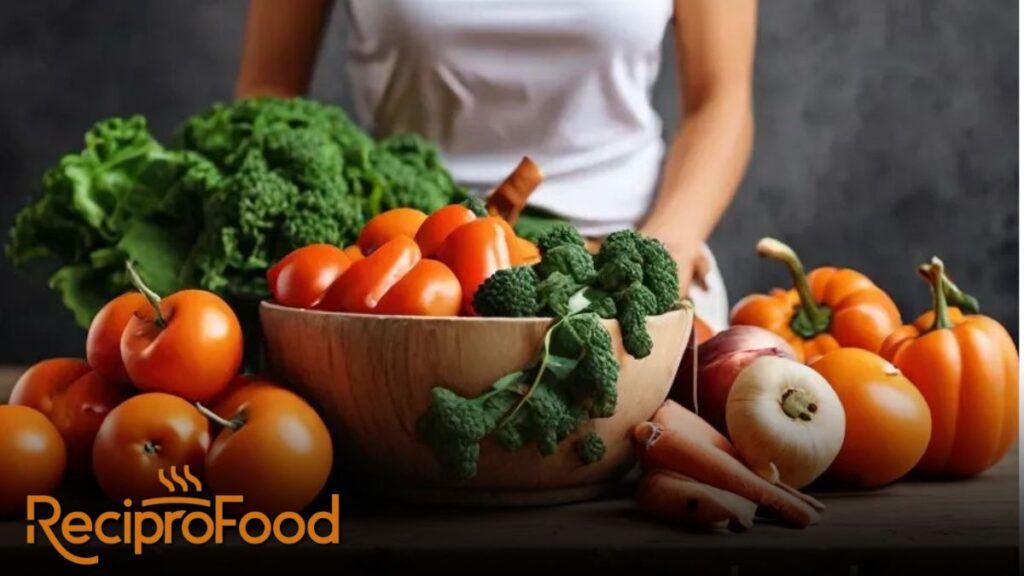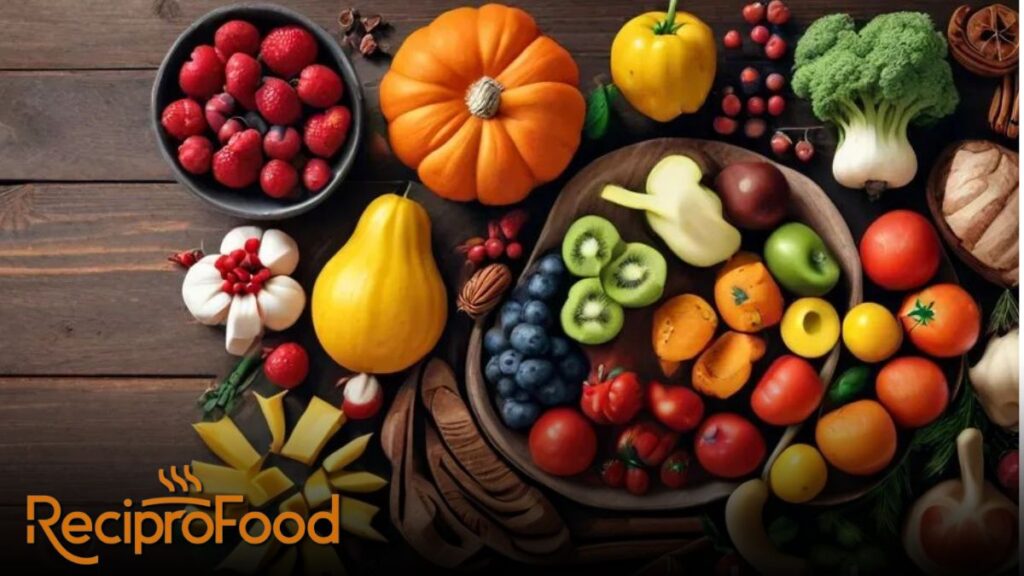Ever wonder why chefs and nutritionists alike frequently suggest seasonal foods? Understanding seasonal foods can transform your diet, offering many health and environmental advantages and improved flavor.
Discover a variety of kid-friendly recipes using seasonal foods that are both nutritious and delicious, making mealtime fun and healthy for your little ones. This post will discuss seasonal foods, their benefits, and helpful hints on including them in your meals.
What Are Seasonal Foods?
Fruits, vegetables, and other agricultural items gathered and consumed during their natural growing season are called seasonal foods. For instance, root vegetables like potatoes and carrots are harvested in the fall and winter, but strawberries are usually in season in late spring and early summer. Eating in season implies adjusting your diet to coincide with the cycles of crop availability.
The Importance of Eating Seasonal Foods
Eating in season is a practice based on nutrition, sustainability, and culinary history rather than just a fad diet. This is the reason why:
- Peak Nutritional Value: Seasonal crops are picked at their ripest to preserve as many nutrients as possible. Compared to produce harvested outside of the season, seasonal fruits and vegetables are higher in vitamins, minerals, and antioxidants.
- Better Flavor: Have you ever observed that a tomato lacks flavor when cold outside? This is so that the taste of vegetables cultivated outside of season doesn’t deteriorate due to artificial growing circumstances. On the other hand, seasonal foods have better flavor and texture because they are grown in their natural habitat.
- Cost-Effective: Seasonal produce is typically less expensive because it is abundant and doesn’t need as much storage or transit. By purchasing in season, you can eat fresher, tastier food while saving money.
- Supports Local Farmers: Selecting items in season increases your likelihood of purchasing from nearby farmers, bolstering the local economy. Additionally, this lessens the carbon footprint incurred by long-distance produce transportation.
- Environmental Benefits: Growing crops out of season frequently requires more energy and water. Seasonal farming is a more sustainable practice because it depends less on artificial interventions and more on natural cycles.
Seasonal Foods Around the World
Seasonal cycles differ throughout regions because of differences in geography and climate. A few seasonal dishes from around the globe are shown below:
North America
- Spring: Asparagus, strawberries, rhubarb
- Summer: Blueberries, corn, tomatoes
- Fall: Apples, pumpkins, squash
- Winter: Citrus fruits, root vegetables, kale
Europe
- Spring: Peas, radishes, wild garlic
- Summer: Berries, zucchini, cucumbers
- Fall: Figs, mushrooms, pears
- Winter: Brussels sprouts, leeks, parsnips
Asia
- Spring: Bamboo shoots, cherries, spinach
- Summer: Mangoes, lychees, bitter melon
- Fall: Persimmons, sweet potatoes, chestnuts
- Winter: Navel oranges, daikon radish, turnips
Australia
- Spring: Avocados, pineapples, spring onions
- Summer: Watermelons, stone fruits, sweet corn
- Fall: Apples, grapes, broccoli
- Winter: Mandarins, carrots, silverbeet

How to Incorporate Seasonal Foods into Your Diet
It’s not as complicated to include items in season in your diet. Here are some practical pointers to get you going:
Visit Farmers’ Markets
Farmers’ markets are a great way to find seasonal, local, and fresh produce. Purchasing food from these markets guarantees you obtain the freshest produce possible while supporting regional agriculture.
Plan Your Meals Around Seasonal Produce
Start by considering what’s in season while creating your meal plan. This method guarantees you’ll get a range of nutrients all year and inspires culinary inventiveness.
Preserve Seasonal Foods
If you have an abundance of produce during the season, consider canning it for later use. By canning, freezing, and drying, fruits and vegetables can be preserved for a longer period, so you can continue enjoying them long after their season has ended.
Join a CSA
Programs like Community Supported Agriculture (CSA) provide an easy way to get seasonal food regularly straight from a nearby farm. By joining a community support system, you can support sustainable farming techniques and try new foods.
The Impact of Seasonal Foods on Health
Eating foods in season has health benefits that go beyond their nutritional content. Here are several ways that eating in the season might enhance your general health:
Enhanced Digestion
Eating according to the seasons can support better digestion. For instance, winter is the best time for warming meals like root vegetables and squash, while summer is the best time for cooling foods like cucumbers and melons.
Improved Immunity
Foods in season are frequently high in vitamins and minerals that boost immunity. For example, citrus fruits are rich in vitamin C during the winter, essential for warding off colds and the flu.
Balanced Energy Levels
Eating seasonally can help you regulate your energy levels. Consuming seasonal and naturally occurring foods matches your diet to your body’s requirements, providing continuous energy throughout the day.

Frequently Asked Questions About Seasonal Foods
Q: What are seasonal foods? A: Seasonal foods are fruits, vegetables, and other products that are harvested and eaten during their natural growing season, offering peak freshness, flavor, and nutritional value.
Q: Are organic foods always seasonal? A: Not necessarily. While many organic foods are seasonal, it’s important to check labels for organic certification and consider the growing practices used.
Q: What if I live in a region with limited seasonal variety? A: Certain seasonal foods are still available, even in areas with slight variation. Consider what is easily sourced locally and experiment with different preparation methods for these ingredients.
Q: Are seasonal foods always organic? A: Only sometimes. Even though seasonal foods are frequently produced using fewer pesticides, if organic certification is important to you, check for it.
Q: Can I still eat seasonal foods if I have dietary restrictions? A: Of course! Many different seasonal food alternatives are available, so you can find something to suit your dietary requirements.
Q: How can I tell if something is in season? A: You can get a decent notion of what’s in season in your area by doing a fast web search or going to your neighborhood farmers’ market.
Conclusion
Eating in harmony with nature’s cycles is a straightforward yet effective strategy to improve your diet, promote regional farming, and support environmental sustainability. Eating in this way allows you to benefit from several health advantages and taste fresher, more flavorful meals. Discover the world of seasonal cuisine now and feel the good effects it can bring about in your life.

